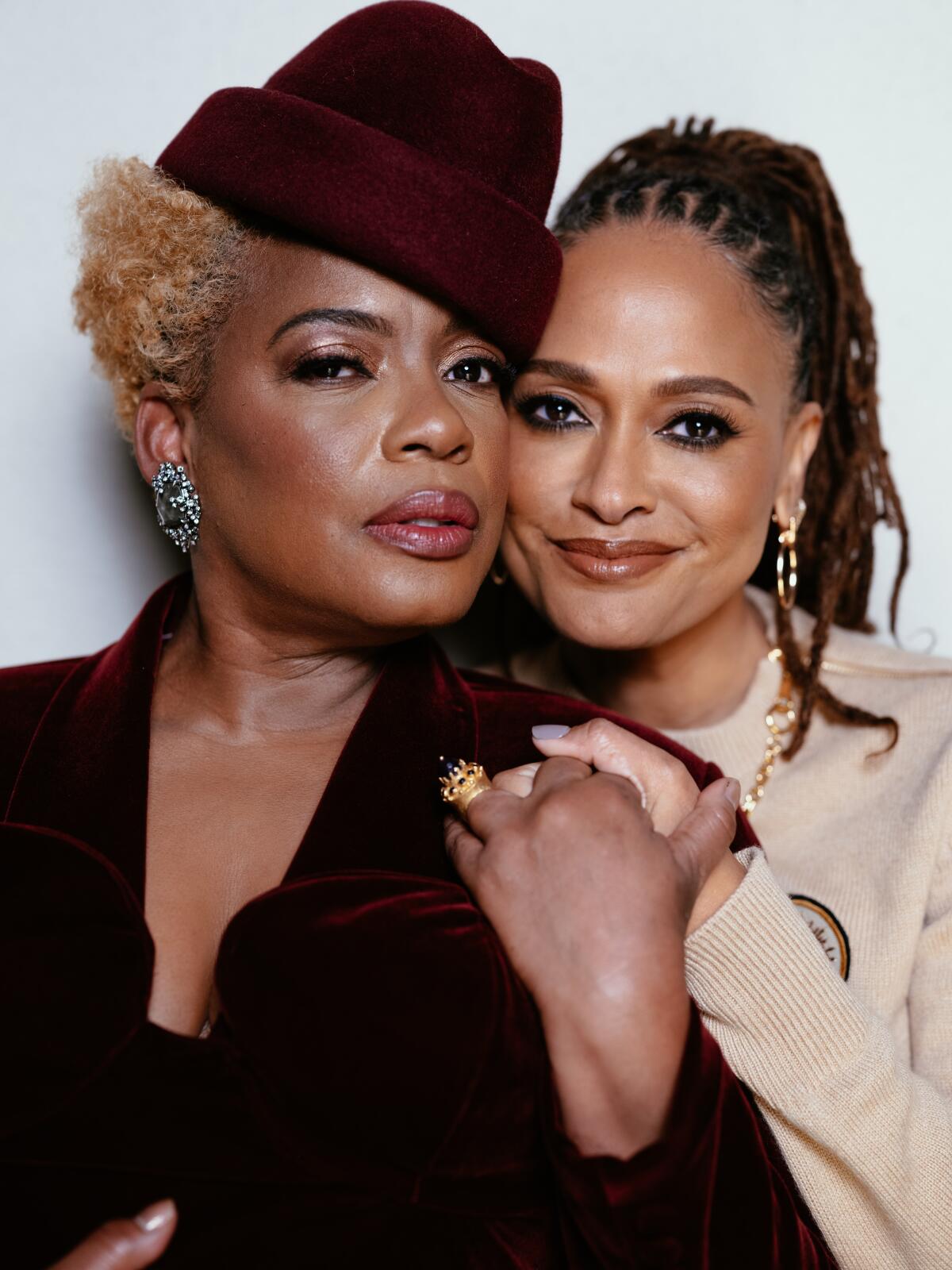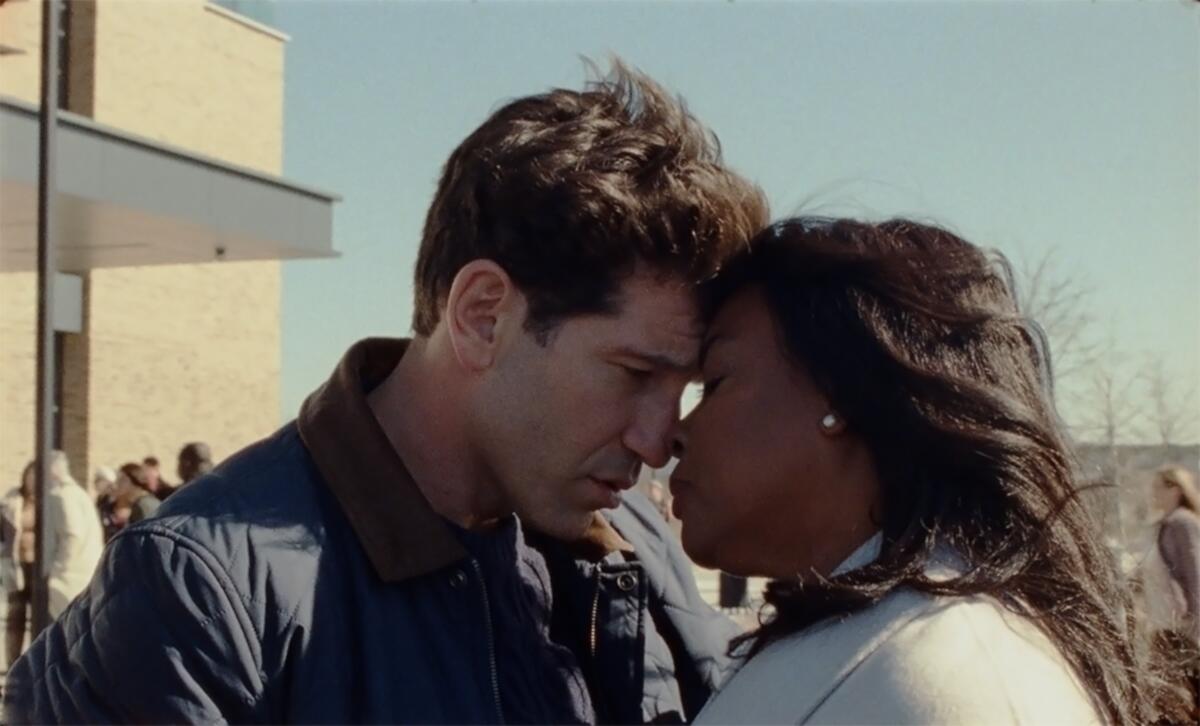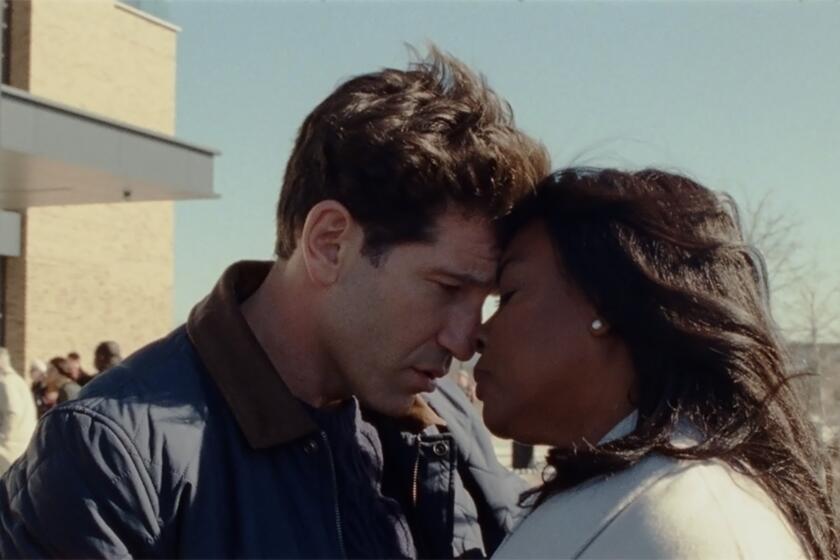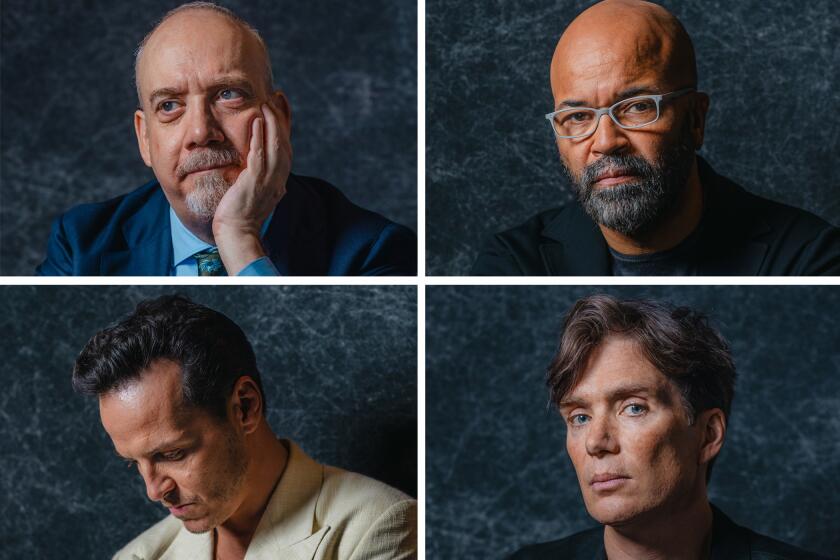With ‘Origin,’ Ava DuVernay tackles race issues through a new lens

- Share via
Isabel Wilkerson’s 2020 nonfiction book “Caste” is a sort of biography of an idea, and an elusive idea at that. Americans tend to be pretty literate about race and class. Caste? Not so much, at least not as much as in, say, India, where artificial hierarchies are rigidly defined.
So when Ava DuVernay fell in love with the book and grew interested in adapting it for the screen, she faced a challenge: How to turn Wilkerson’s central concept into a story? “I was trying to figure out how to get the information that I wanted to convey emotionally into the film,” the writer-director said in a video interview from New York. “There were characters in the book, but there wasn’t enough about them to sustain a whole movie.”
As it turned out, she found the answer in the author herself. DuVernay’s new movie, “Origin,” mixes elements of “Caste” into the story of how Wilkerson, played by Aunjanue Ellis-Taylor, came to write the book during a particularly trying time in her life, marked by the deaths of several loved ones, including her husband (played by Jon Bernthal). It’s the story not just of an idea, but also the woman who breathed life into that idea through her research, reporting and life experiences. In the hands of Duvernay and Ellis-Taylor, “Caste,” and Wilkerson, come to life.
Isabel Wilkerson, the Pulitzer-winning historian, becomes a main character portrayed by Aunjanue Ellis-Taylor in a film based on her exploration of racism.
It’s a bold gambit that pays great dividends. It also flows naturally from the work of Wilkerson, the Pulitzer-winning journalist and author of the Great Migration epic “The Warmth of Other Suns,” who has a gift for infusing history with the power of personal narratives. “That’s the brilliance of her writing,” Ellis-Taylor said from Los Angeles. “She takes these ideas that we have become lazy about, that have become essentially abstractions, and makes them very, very personal. The beautiful thing about the book, for me, is that it is as much a memoir as it is a historical or journalistic work.”
A brief primer: Caste can be seen as an artificial hierarchy that helps determine status or respect. “That social hierarchy can be applied to gender, sexual preference, nationality, your ethnicity, your religion, class or race,” DuVernay says. “It is the foundation of all of our ‘isms’: racism, antisemitism, Islamophobia, homophobia, sexism.” In “Caste” and in “Origin,” it can apply to a German man (Finn Wittrock) who falls in love with a Jewish woman (Irma Eckler) during the Third Reich, or the Dalit people of India, who reside at the bottom of that country’s caste system. Or to Trayvon Martin, the Florida teen who was shot and killed by George Zimmerman, essentially for walking in the wrong neighborhood, in 2012.

Martin’s killing was the impetus for Wilkerson’s book; as we see in the film, an editor approached her to write an article about it, and the deeper she dug, and the more connections she made, she came to believe race was just part of the story. “Origin” opens with the death of Martin (played by Myles Frost); your heart sinks as soon as you see him put his Skittles on the store counter.
Raised in rural Mississippi, Ellis-Taylor is no stranger to racial discrimination. But she appreciates how “Origin” and “Caste” each push beyond those parameters and into something more complex.
“We use racism as a way to describe our social ills and the hierarchies in this country,” the actor says. “But You can be a Black police officer who beats a Black kid, and you are doing that because you are operating as a tool in the hierarchy.”
“Race and class are elements of it,” DuVernay adds. “But it’s complicated.”
DuVernay has never shied away from such material. In “Selma,” she dramatized the challenges faced by civil rights activists, led by Martin Luther King Jr. (David Oyelowo), in the Deep South. In the miniseries “When They See Us,” she told the story of the five Black teenagers imprisoned for assaulting a jogger in Central Park in 1989; their convictions were later vacated. In the documentary “13th,” she looked at racial inequities in the American prison system. “I am interested in being a citizen of the world and trying to interrogate the way that we treat each other,” she says. “That’s what guides me as I pick projects.”
But with “Origin,” she also saw the opportunity to tell a different kind of story, about the intellectual journey of a Black woman. When we spoke, DuVernay had recently rewatched “Losing Ground,” a 1982 drama written and directed by Kathleen Collins, about an eventful summer in the life of a philosophy professor (Seret Scott). She was struck, and saddened, by its uniqueness.
Our BuzzMeter film experts are back to predict what Oscar voters will nominate in 10 Academy Awards categories. Vote in the online polls!
“She’s not doing hard-core academic research, and she’s not in pursuit of one intellectual goal, but she is in a life of the mind,” DuVernay says of Collins’ heroine. “That’s something that’s so rare for women on screen, and certainly for Black women on screen. In watching that work in the context of ‘Origin,’ I felt a real kinship to Kathleen Collins, just as a descendant of her as a Black woman filmmaker. The interior lives of so many people are traditionally left off of the screen.”
Hollywood, after all, has its own hierarchies — its own caste system, if you will. In presenting the story Wilkerson told, as well as the story of Wilkerson herself, DuVernay hopes to remove some barriers and to show that even the most hidebound systems can be shaken.
“Caste animates every part of our lives,” Duvernay said. “It’s something that we do not talk about, even though it’s foundational to so much of what we experience.”
More to Read
From the Oscars to the Emmys.
Get the Envelope newsletter for exclusive awards season coverage, behind-the-scenes stories from the Envelope podcast and columnist Glenn Whipp’s must-read analysis.
You may occasionally receive promotional content from the Los Angeles Times.












